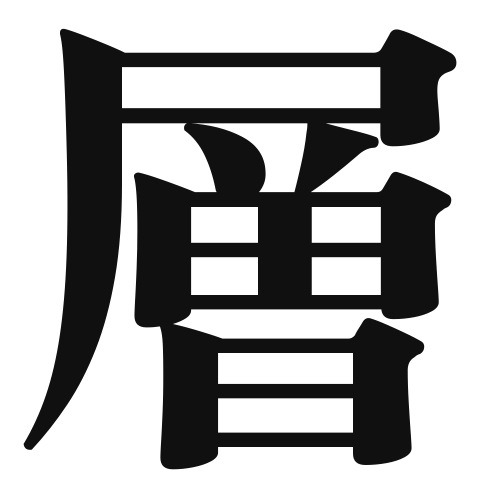1. Overview of Meaning
The kanji “層” (sou) means “layer” or “stratum.” It is used to describe different levels or layers of something, whether in a physical sense, like geological layers, or in a more abstract sense, such as social layers or levels of complexity.
2. Formation and Radical
The kanji “層” is a compound character, formed by combining two parts: the radical “山” (mountain) and the phonetic component “倉” (storehouse). The mountain represents layers of earth, while the storehouse suggests the idea of stacking or layering items. The radical “山” indicates that this kanji is related to things that are layered or stacked.
3. Examples of Usage
Common words and phrases that include “層” are:
- 地層 (chisou) – geological layer
- 社会層 (shakai sou) – social class
- 多層 (tasou) – multi-layered
Example sentences in daily conversation:
- この地域には多くの地層があります。 (Kono chiiki ni wa ooku no chisou ga arimasu.) – There are many geological layers in this area.
- 彼は社会層の違いを理解しています。 (Kare wa shakai sou no chigai o rikai shiteimasu.) – He understands the differences in social classes.
4. Synonyms and Antonyms
Similar kanji with related meanings include:
- 階 (kai) – level or floor, often used in buildings.
- 層 (sou) – layer, which can refer to both physical and abstract layers.
Antonyms include:
- 単一 (tan’itsu) – singular or single, indicating a lack of layers or complexity.
5. Cultural and Historical Background
The concept of “層” is significant in Japanese culture, particularly in relation to nature and society. For example, the idea of different layers in society reflects the traditional Japanese social structure. Additionally, proverbs and idiomatic expressions often reference layers, such as “千の層を持つ” (sen no sou o motsu), meaning “to have many layers,” which can refer to a person’s complexity or depth.
